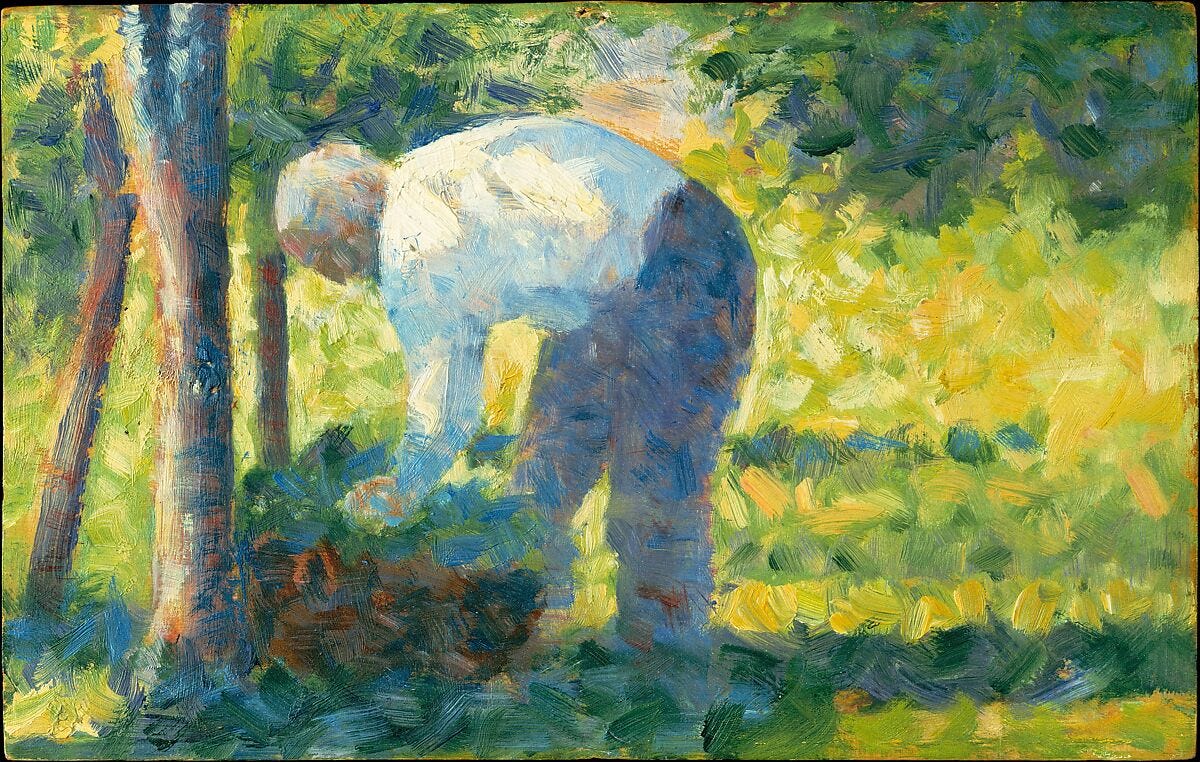Back in college, I loved meeting with professors to get their feedback on my essays. Even then, I saw that revision is dispensable to writing. While we often question whether our work is ever finished (How many revisions does it take to be done?), good revisions can at least make us feel like we are moving closer to something we can call good.
Whether you’re brewing kombucha, penciling a sketch, or drafting your first book, there will always be revisions. But revisions are challenging, and there is no way around that. In last month’s poll, I learned that many of you are writers. So today we’ll just snorkel around the surface of the art of revision—perhaps the part of writing I am most passionate about and the part that’s most overlooked by new writers.
Revisions are just what the word itself contains—a “re-envisioning” or a way of seeing your work in a new light. Revisions take more than a light edit. They involve the “search for what one is saying,” as John Updike puts it. This is where editors are indispensable. Their purpose is to help you re-envision the work. With some detective work, they can sift through words and scan for tone and images to help you grapple with that mystery and universalize for your readers the meaning you’ve discovered.
When writers resist revisions, it’s most often due to a sense of discouragement. But this is where I love the work of an editor. I think my work is about finding the unrealized surprises that get sometimes buried or muddled. It’s the deep digging of archaeological work that brings to life the best narratives, stories, and essays. But discouragement is real, so I’ve gathered some advice from writers on how to reconsider the daunting process of revision:
· An inability to see the beauty in your work
Get it down. Take chances. It may be bad, but it's the only way you can do anything really good. –William Faulkner
· An inability to know when the work is finished
Abandon the idea that you are ever going to finish. Lose track of the 400 pages and write just one page for each day, it helps. Then when it gets finished, you are always surprised. –John Steinbeck
· Losing a sense of joy with writing
This above all—ask yourself in the stillest hour of your night: must I write? Delve into yourself for a deep answer. And if this should be affirmative, if you may meet this earnest question with a strong and simple “I must,” then build your life according to this necessity; your life even into its most indifferent and slightest hour must be a sign of this urge and testimony to it. –Rainer Maria Rilke
· A sense of failing at writing
Failures are fingerposts on the road to achievement. –C.S. Lewis
Finally, here is a brief list of some of my favorite books on writing:
· The Writing Life, Annie Dillard
· Letters to a Young Poet, Rainer Maria Rilke
· On Writing Well, William Zinsser
· The Elements of Style, William Strunk, Jr. and E.B. White
· Walking on Water: Reflections on Faith and Art, Madeleine L’Engle
· Mystery and Manners: Occasional Prose, Flannery O'Connor
· Aspects of the Novel, E.M. Forster
· C. S. Lewis and the Art of Writing: What the Essayist, Poet, Novelist, Literary Critic, Apologist, Memoirist, Theologian Teaches Us about the Life and Craft of Writing, Corey Latta
· For poets: A Poetry Handbook, Mary Oliver and The Poetry Home Repair Manual, Ted Kooser
In the writing life,
To Ponder
What are you working on now that needs revision? How will you start and plan your revision? Is there a book on the writing life that encouraged you? Tell me what I missed!
What I’ve Been Writing
Catholic Women in Business, Discovering the Beauty of Quiet Leadership
There are two main reasons why I think we resist the image of the introverted leader. One reason is that American society tends to privilege gregariousness as an ideal leadership quality. In Susan Cain’s pivotal book Quiet: The Power of Introverts in a World that Can’t Stop Talking, she looks at the cultural evolution in America that began around the 1920s in which Americans began focusing on the outer self (rather than inner self) in performance, entertainment, and perceptions. Americans soon embraced personality and charm over character and virtue.
The distinction between extroverts and introverts can have its place in how we strive to understand people and work with them more effectively. However, a more valuable way of approaching this kind of discussion is to focus on virtues. What gifts and virtues can I discover through my claim to being an introvert? How can I harness those gifts and virtues for the good of the people I lead and serve?
Thanks for subscribing to A Holy Wonder. If you’ve enjoyed the newsletter or something in it resonated with you, I invite you to share it with others.





